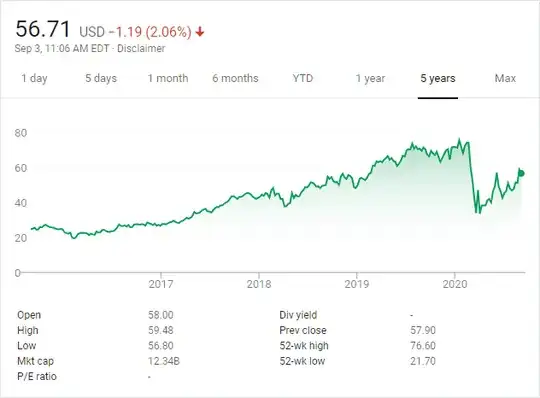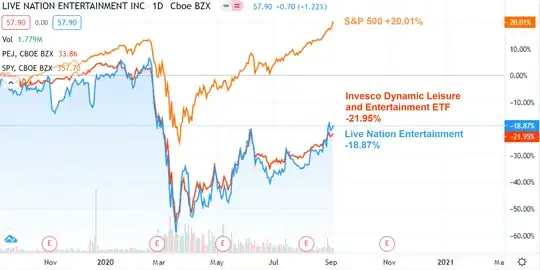To help me better understand the stock market and really what drives it, why is Live Nation's stock trading so high in the middle of a pandemic that's brought its entire industry (live entertainment) to a grinding halt? Live Nation is the number one or two largest live-entertainment producer in the entire world (AEG being the other, a non-publicly-traded company).
Live Nation's share price is at early-2019 levels, a time when the industry was rocketing on a decade-long historic run that is maybe more impressive than any other industry (generating record revenue each successive year for at least the last 5). More people were attending live events in 2019 than in the history of the industry with single events (individual music festivals) selling half a million tickets. And right now it's at a complete standstill with no end in sight–no idea how many years until an indoor stadium can be filled again–yet the biggest player's share price looks relatively healthy.

